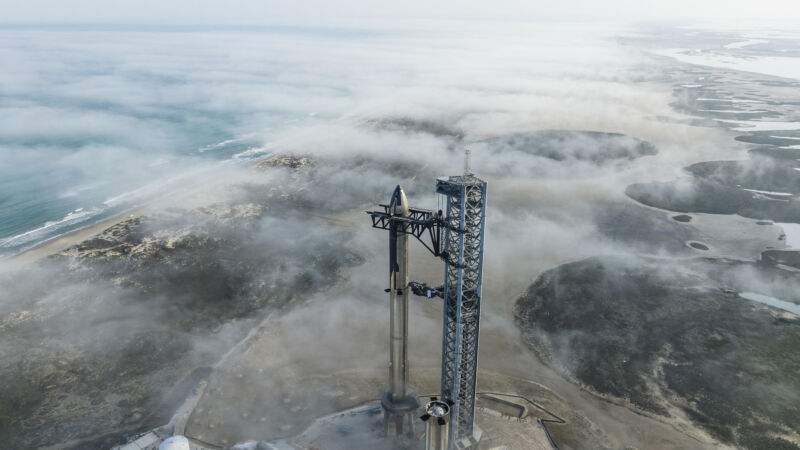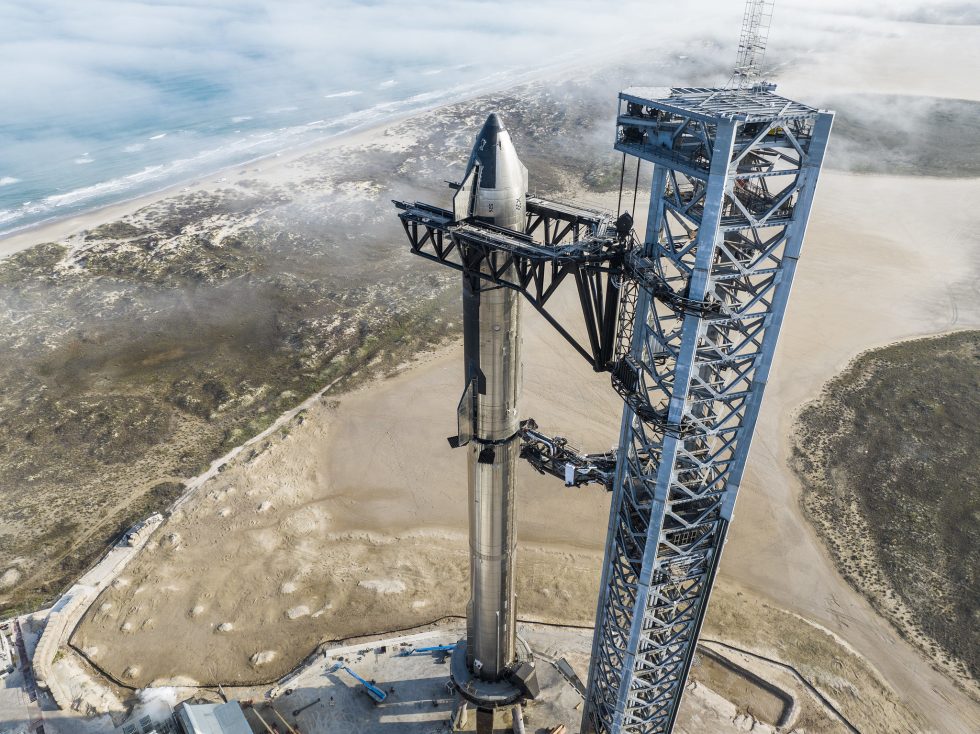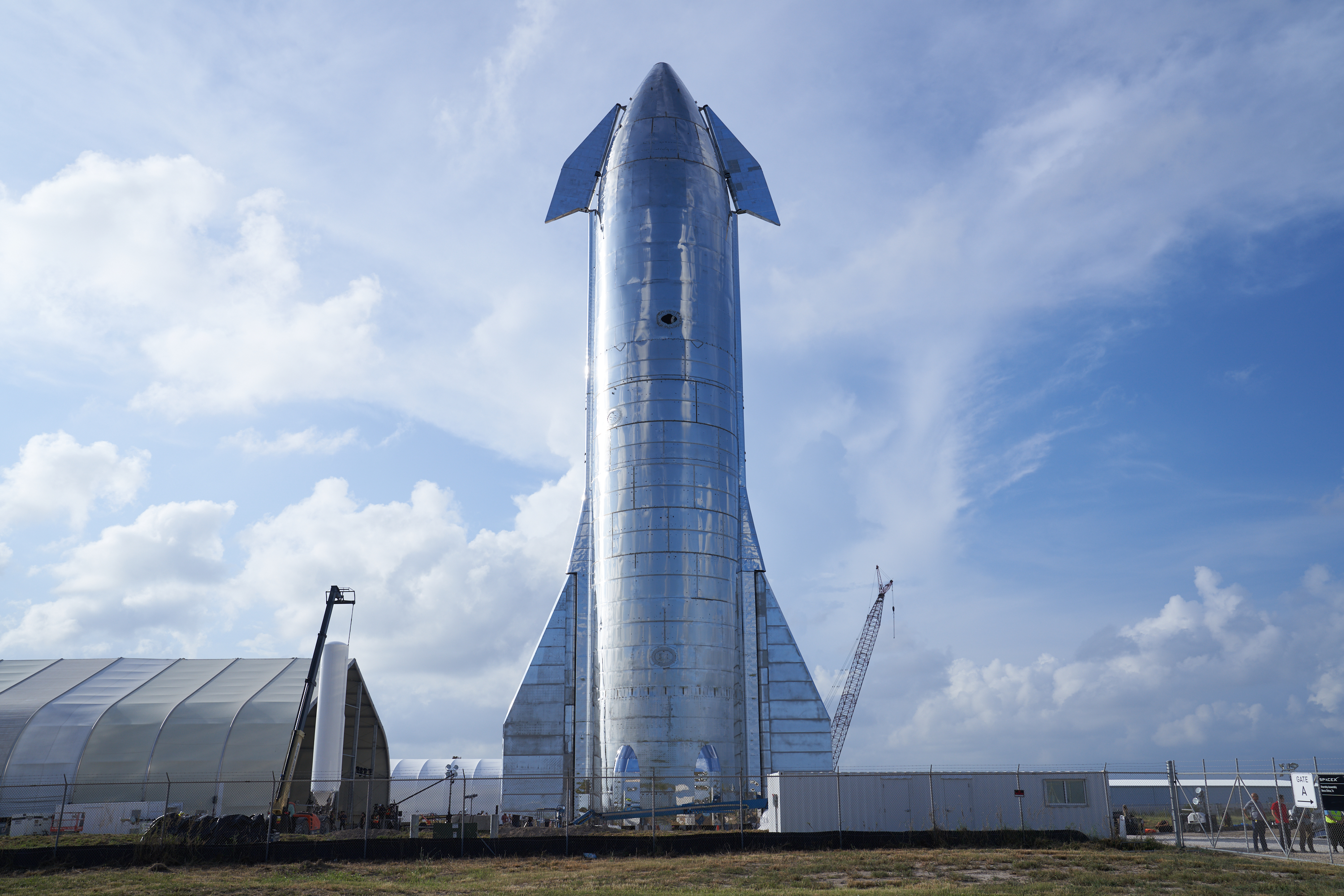
After months of preparation, SpaceX is now approaching the critical test phase of its launch campaign for the massive Starship vehicle.
The company has evacuated nearby residents from the launch site in South Texas, near Boca Chica Beach, during the hours of 8 am CT (14:00 UTC) to 8 pm CT on Monday. If preparatory activities go well, the company will load both the Starship upper stage and Super Heavy booster with cryogenic methane and oxygen later today. The countdown will proceed toward liftoff but end just before the transfer of internal power to the launch vehicle.
There will be no engine ignition today. However, the upper stage of this vehicle, Ship 24, previously underwent a successful static fire test of its six Raptor rocket engines on September 8, 2022. The first stage, Booster 7, has seen as many as 14 of its 33 Raptor engines test fired during activity in November.
Now these two vehicles are fully stacked on the launch pad ahead of today's critical fueling test. While not as dramatic as a test firing, such "wet dress rehearsals" are essential to demonstrate the safe fueling of so much propellant at once. It is one of the biggest milestones remaining ahead of an orbital launch attempt that could take place in a month or two.
Following a successful wet dress rehearsal, SpaceX engineers will assess the data, and if it looks good, the plan will likely proceed toward the final major pre-flight test. To prepare for this full static firing of all 33 Raptor engines on Booster 7, SpaceX will first remove the Starship upper stage as a precaution in case something were to go awry during testing.
Once the static fire test is completed—which may require multiple attempts, given the unprecedented number of large rocket engines firing simultaneously—the vehicles would be re-stacked ahead of a launch attempt. This could come as early as March if things proceed well.
Of course, things may not go well, and SpaceX may ultimately decide to use newer iterations of Starship hardware for the orbital test flight. Already, the company has moved "Ship 25" to a launch mount for static fire testing in South Texas. Two additional Starships are in various stages of construction, with parts of Ship 28 and Ship 29 also spotted by observers in South Texas. SpaceX has also already performed cryogenic testing on Booster 9 and has nearly completed stacking of Booster 10.
It has been a long time since SpaceX launched any rockets from South Texas. Its final prototype, "SN15," took flight for six minutes on May 5, 2021. After flying to an altitude of 10 km, this was the first prototype to achieve a soft landing, demonstrating key technology for the Starship design.
Since that time, SpaceX has invested heavily—likely on the order of $1 billion to $2 billion—in launch infrastructure and production facilities at the Starbase site in South Texas. Although it was willing to take risks with the Starship prototypes, the full stack of Super Heavy and Starship carries substantially more propellant, and an accident at the launch site would be highly destructive.

Therefore, SpaceX is proceeding more cautiously toward its orbital test flight. The goal is to ensure the rocket clears the launch site so that it does not damage valuable infrastructure there, at a minimum. Monday's methodical wet dress rehearsal is a key part of that test campaign.
While SpaceX is not providing a livestream of Monday's testing, several private streamers, including NASASpaceflight and LabPadre, will have you covered as the rocket turns white and frosty.



3175x175(CURRENT).thumb.jpg.b05acc060982b36f5891ba728e6d953c.jpg)

Recommended Comments
There are no comments to display.
Join the conversation
You can post now and register later. If you have an account, sign in now to post with your account.
Note: Your post will require moderator approval before it will be visible.